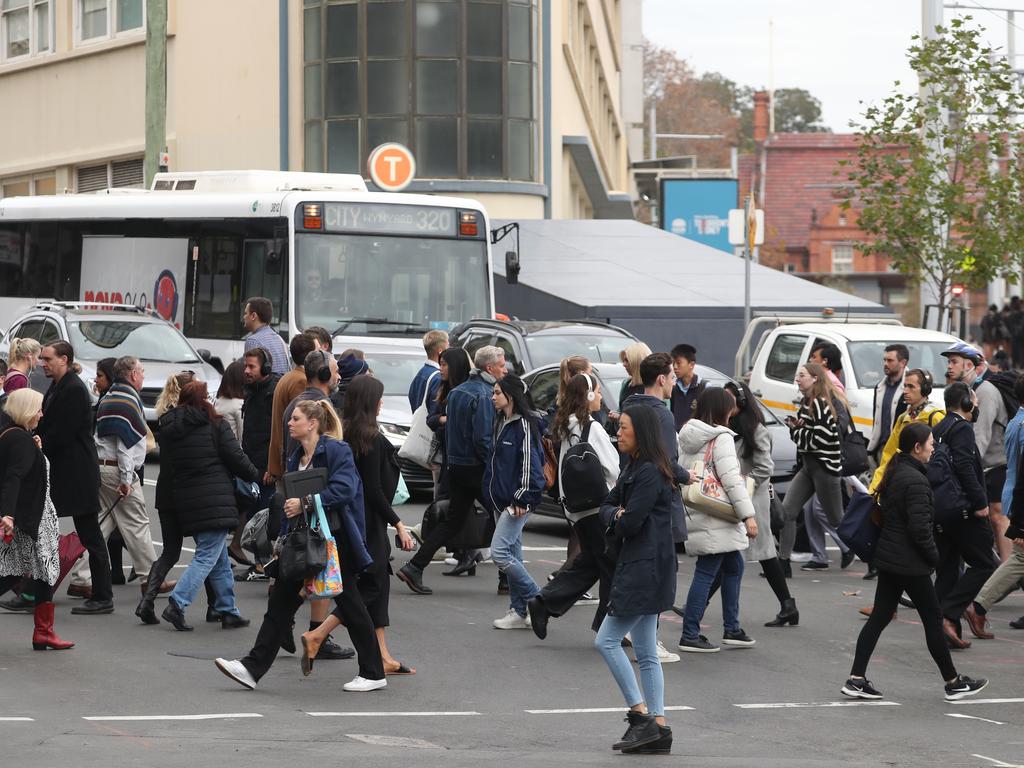‘Power has shifted’: Big change coming to Australian workplaces
Experts have warned a big shift is about to hit Aussie workplaces – and it’s a change that employees have been dreading.
For a long time the state of Australia’s job market has meant employees and job seekers have been able to call a lot of the shots – but that is all about to change.
The aftermath of the pandemic saw employees retain a lot of bargaining power. Remote and hybrid work had become the new normal and the demand for workers was high, meaning job seekers have had significant sway when it comes to making salary and flexibility demands.
However, experts have predicted this period is quickly coming to an end, with workplaces already starting to see a big shift in favour of employers.
A new report from people2people Recruitment has found that the worsening cost-of-living crisis and a growing fear of job cuts is behind the power shift, with workers now looking to retain their jobs rather than risk trying to find new work.
The 2024 Employment and Salary Trends Report included feedback from more than 10,000 employees, 2500 job seekers and 1000 employers across Australia, New Zealand and the UK.
More than 70 per cent of employees revealed they were hesitant to seek new roles due to global economic uncertainty, with 64 per cent expressing heightened financial concerns compared to 2023.
Erin Devlin, people2people Recruitment’s Victoria managing director, said job seekers have also changed their focus and are prioritising more stable, long-term opportunities over other perks.
“In 2024, under the cost-of-living crisis and given the current labour market uncertainty, job seekers favour career opportunities over everything else in job advertisements,” she said.
“In 2022 and early 2023, due to the many skill shortages, job seekers increased their salary and benefit expectations. Now that the power has shifted in employers’ favour, job seekers’ focus has moved towards long-term opportunities.”

Marketing director for people2people Recruitment, Remi Marcelin, told news.com.au that the current economic landscape hasn’t been as favourable as it was back in 2022.
The shift in power across different workplaces has been intensified by cost pressures among businesses that have, in some cases, affected recruitment.
“As labour mobility continues to expand talent pools across the country, and with a few employers scaling back their hiring initiatives, competition among job seekers for the same positions has intensified, granting hiring managers greater negotiation power during the recruitment process,” he said.
“For employers currently in the position to hire, it’s an opportune market where they may seize top talent that remains unclaimed – a rarity, especially when the economic landscape favours all employers.”
From a job seeker’s point of view, Mr Marcelin said the “shift in the balance of power” shows the need to remain open-minded during the job search and have an understanding of their non-negotiables for a role and other aspects that would be nice to have but not deal breakers.
He warned that because of this, those looking for work should be prepared to manage their expectations in case all their criteria isn’t met during the job offer stage.
This change in attitude means employers are now able to make more demands that staff may have previously pushed back on, including scaling back remote work and bringing employees back into the office.
Craig Sneesby, managing director of u&u Recruitment Partners, said that some employers are taking it a step further and offering different salary packages for in-office employees and remote workers.
He said that, since the pandemic, people have become so used to working from home that employers are finding it difficult to get even jobseekers to meet face-to-face, with many preferring to do video interviews.
Data provided by u&u Recruitment Partners revealed only six person cent of candidates are willing to meet in person for the interview process.
“As markets tighten, performance expectations are lifting and this is beginning to have a knock-on effect on employees – specifically around coming into the office, engaging and contributing to workplace culture and no longer hiding behind a screen to operate,” Mr Sneesby said.
Decreasing work from home opportunities isn’t the only change Aussies are likely to see, with Mr Sneesby warning that being successful in your role won’t be as easy as it has been in recent times.

Employees are likely going to have to adapt to higher performance expectations and be able to demonstrate their value by making tangible contributions and a positive impact on the culture of the business.
“This may require a greater focus on productivity, efficiency, and proactive problem-solving to meet the evolving demands of the workplace as well as committing to a less flexible working schedule,” he said, adding these changes will likely start to be seen over the next six to 12 months.
There has also been a growing debate about whether going into the office should make you more viable for a promotion, with Mr Sneesby suggesting there may be some merit in the idea.
“If there are two deserving employees who are producing similar results fighting for one promotion then managers are naturally going to side with the person who is contributing more to their organisation from a holistic standpoint,” he said.
While the power may be shifting back to employers, making sure employees are happy and maintain a comfortable work-life balance was still key in ensuring an organisation’s success.
“It’s all about finding a fair and equitable balance between both parties – they can’t survive without each other, so finding a happy medium is crucial in order for both to thrive and drive productivity,” Mr Sneesby said.






